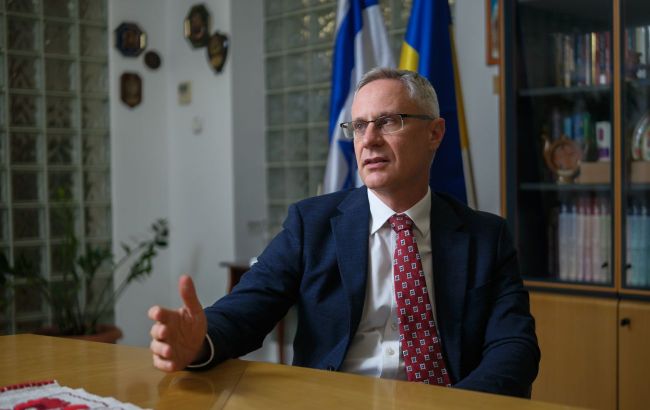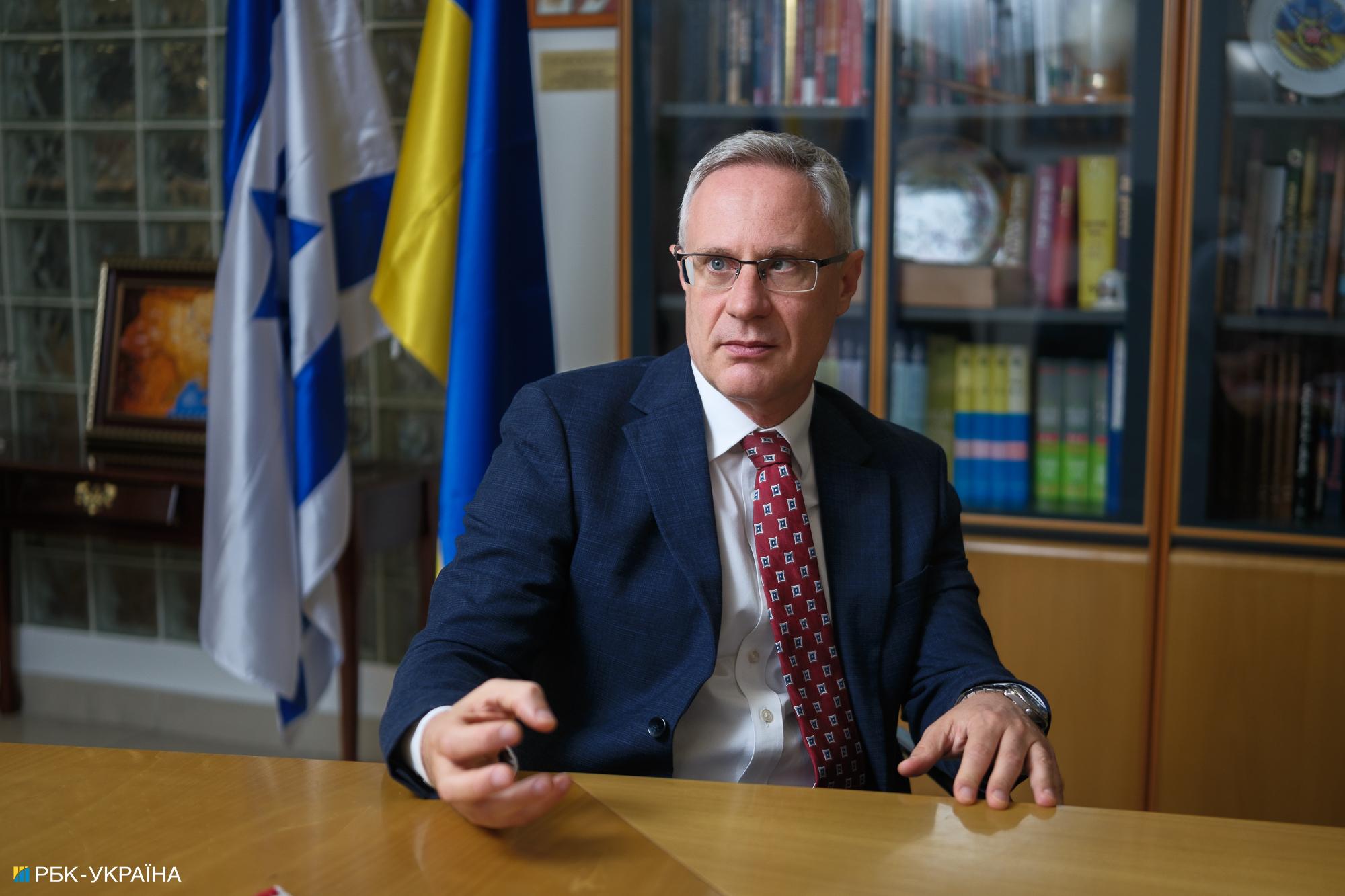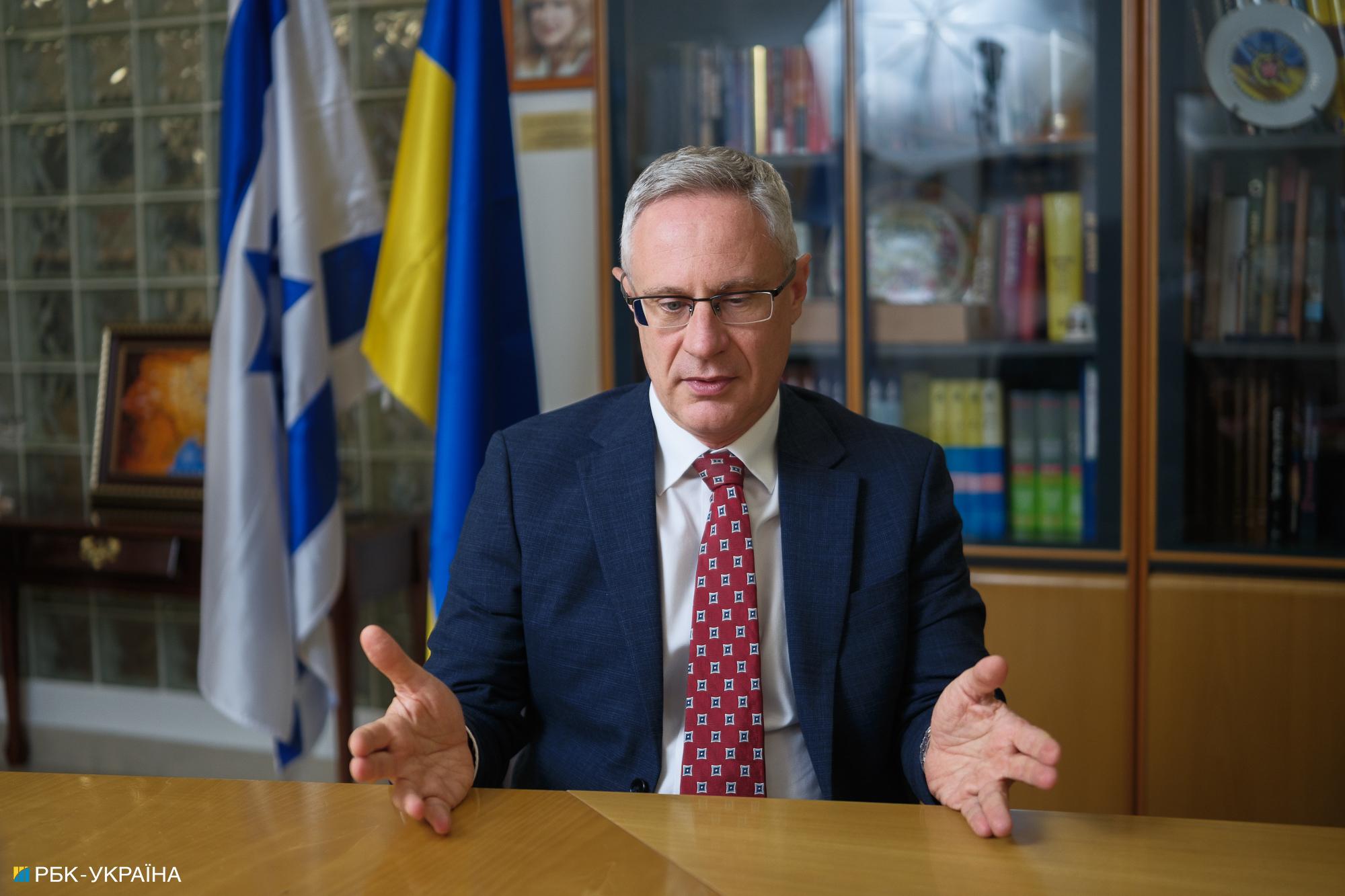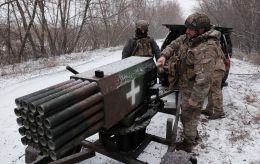Israeli Ambassador to Ukraine Michael Brodsky: After strike on Iran, it won't be able to help Russia
 Israeli Ambassador to Ukraine Michael Brodsky (all photos: RBC-Ukraine, Vitalii Nosach)
Israeli Ambassador to Ukraine Michael Brodsky (all photos: RBC-Ukraine, Vitalii Nosach)
Israeli Ambassador to Ukraine Michael Brodsky, in an interview with RBC-Ukraine, spoke about the goals and outcomes of the 12-day war between Israel and Iran, the role of the United States and Russia, as well as the real relations between Israel and Ukraine.
In June, the long-standing hostility between Israel and Iran flared up into a 12-day war, accompanied by exchanges of rocket and drone strikes. The war came to an end following US intervention. At the same time, Russia, which is waging an aggressive war against Ukraine, verbally expressed active support for Iran, condemning Israel, which in reality targeted only Tehran's nuclear and military facilities.
In an interview with RBC-Ukraine, Israeli Ambassador to Ukraine Michael Brodsky spoke about the results of the Israeli-Iranian war, operations in the Gaza Strip, and Israel’s attitude toward Russia and Ukraine.
The results of the 12-day war with Iran
Israel is returning to normal life–this episode of the war is over. According to Ambassador Michael Brodsky, thanks to the military operation, they managed to postpone the possibility of Iran creating a nuclear bomb at least for several years.
Brodsky clarified that before the start of the operation, Israel had two goals – to strike Iran’s nuclear program and to limit or destroy, as much as possible, Iran’s missile potential. The entire missile potential was not destroyed, but it was severely damaged – launchers, missiles, and factories producing both missiles and drones were significantly damaged.
At the same time, he believes that Tehran’s statements about their supposed victory are aimed at a domestic audience.

"According to the assessments of all military experts, Israel achieved an unequivocal victory by conducting a very impressive military operation. And it did so with minimal casualties, which is also important. In just 12 days, Israel managed to inflict significant damage on Iran’s nuclear and missile program, destroy the leadership of the Iranian army, the Islamic Revolutionary Guard Corps, as well as eliminate those scientists who were working on nuclear developments and creating a nuclear bomb to destroy Israel and threaten the entire world," said the Israeli ambassador to Ukraine.
The final point in this conflict was made by the United States. American forces struck a facility in Fordow. The US unequivocally took Israel’s side and was ultimately the country that led to both sides agreeing to a ceasefire, Brodsky says.
Iran’s nuclear program and the future of agreements
Iran, if it has the will and the ability, may resume its nuclear program, the ambassador admits. This could take several years or more. But Israel expects that the main effect of their operation will be that Iran will not want to restore its nuclear program. Ideally, it will reach an agreement with the United States that it will not develop a military nuclear program.
"We expect that Iran will enter into this deal as soon as possible. Any deal that creates an effective mechanism preventing Iran from becoming a nuclear state will suit us," he notes.
According to Brodsky, if Iran is interested in developing peaceful nuclear energy, this can also be done, for example, by importing uranium enriched to a certain level from other countries. This level does not allow it to be used to create a nuclear bomb. At various stages, this issue has been discussed, but Iran refused, says the ambassador.
"And that was another sign that they are indeed developing their military nuclear program. Otherwise, why would they enrich uranium to a higher level?" Brodsky pointed out.
Russia’s position and China’s reaction
According to Brodsky, other countries, including China, behaved more or less restrained. He believes that many of those who criticized Israel were secretly glad, because they understood that a nuclear Iran is a threat to them as well.
Despite the public criticism of Israel, according to the ambassador, the Kremlin did not take real steps in support of Iran. He describes Russia as a country that exerts significant influence in the Middle East region.
"A country with which we have a dialogue, albeit a difficult one, in which we try to find some common interests. Sometimes we succeed. At the same time, we very clearly observe and track contacts between Russia and the leaders of Hamas and Iran. We, to put it mildly, do not like this. The visit of Hamas leaders to Moscow after October 7, we consider indirect support of terror, and we have stated this officially, directly," noted Brodsky.
Iran’s proxies – Hezbollah, the Houthis, and Hamas
During the 12-day war, the Houthis launched several rockets but did not take any further action. And Hezbollah is currently not in a position to allow itself to attack Israel, says Ambassador Brodsky. Not long ago, Israel managed to cause severe damage to its capabilities. Among other things, a series of precision assassinations of Hezbollah leaders was carried out.

"We expect that the Houthis will also stop shelling Israel, because it makes absolutely no sense, especially since the Houthis could feel both the Israeli response and the American response. I think they also have something to lose. We significantly reduced their ability to attack us, delivering several very painful strikes on them. I think it’s in their best interest now to stay quiet and not attack Israel," the ambassador noted.
The situation in the Gaza Strip is different, and for quite some time, there have been attempts to achieve a resolution there. From Israel’s point of view, two tasks have not changed since it launched the operation there. According to Brodsky, these are the release of all hostages and the end of Hamas’s rule in the Gaza Strip.
"If we can reach an agreement on these two points, then, in principle, we are ready for a deal, provided that Hamas does not control the Gaza Strip and that the Gaza Strip does not pose a threat to Israel," said the Israeli ambassador to Ukraine.
At the same time, according to him, Hamas is clinging to the slightest opportunity to stay in power and is bargaining over the issue of hostages. According to Israeli authorities, Hamas still holds 58 Israeli hostages. Unfortunately, only about half of them are alive.
"The Gaza Strip must be peaceful. Who will control it–we don’t know yet. There are various options–perhaps it will be Arab countries, perhaps someone else. Israel does not want to control the Gaza Strip and says so constantly. The fact that we are currently exercising military control over the Gaza Strip – these are temporary measures," Brodsky noted.
Expansion of the Abraham Accords
October 7 became a kind of watershed, marking the beginning of a new stage in the history of the Middle East, says Brodsky. According to him, Hamas, which carried out the massacre on October 7, was counting on a completely different effect—that various Iranian proxies—Hezbollah, the same Houthis, and possibly Iran itself — would join in and bring Israel to its knees.
"In the end, the result was exactly the opposite. Hamas has been almost defeated in the Gaza Strip, Hezbollah has been nearly destroyed in Lebanon. Iran’s nuclear program has rolled back by several years, and they will think twice before getting involved with Israel again. All this has created prerequisites for very interesting processes in the Middle East, namely, for the expansion of the Abraham Accords," explained the Ambassador of Israel to Ukraine.
According to him, there are contacts with various Middle Eastern countries regarding their potential participation in the Abraham Accords. These are countries such as Syria, Lebanon, and Saudi Arabia. If they join the Accords—this will completely change the map of the Middle East and change Israel’s position in the region, the ambassador believes.
"If this process moves forward, Israel will be surrounded—if not by friendly, then definitely not hostile countries—countries with which Israel will have formal agreements and diplomatic contacts. For Israel, this would be a colossal breakthrough. It would be a colossal breakthrough for the entire Middle East,” noted Brodsky.
On relations between Israel and Ukraine
"In Ukraine, the war has been going on for four years already, and unfortunately, there is no end in sight. This strongly affects moral exhaustion and public fatigue. I saw how, in Israel, after 12 days, people were tired, partly because they weren't getting enough sleep. But this does not compare with what is happening in Ukraine. In the four years I have spent in Ukraine, we don’t sleep and we hear sirens," the ambassador shares.
If you ask Israelis today whom they support—Russia or Ukraine—the overwhelming majority will still say that they support Ukraine, Brodsky notes.
He also notes that Ukraine is a definite partner for Israel. Between Jerusalem and Kyiv, there is an exchange of experience regarding the use of Iranian drones and protection against them. At the same time, according to the ambassador, Israel still has "serious limitations" when it comes to transferring weapons and technologies to Ukraine.

